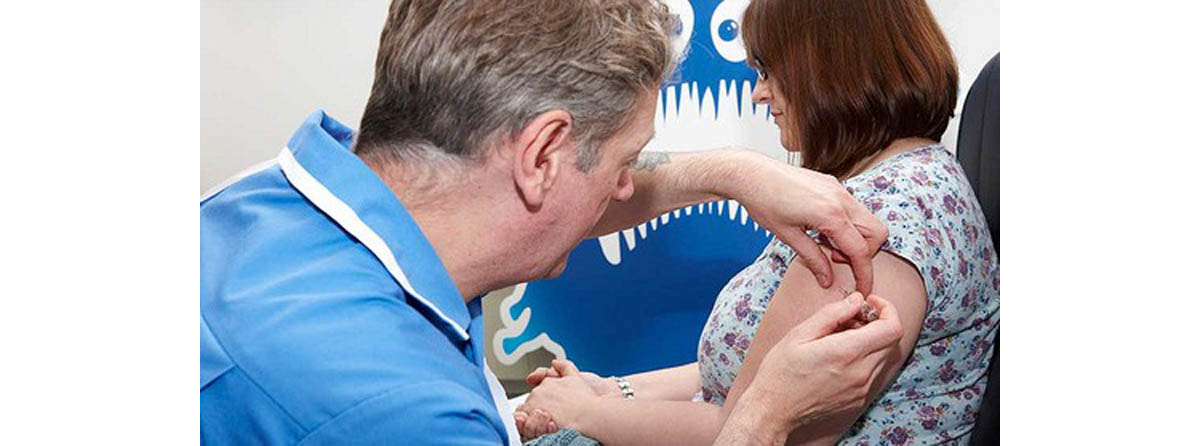Table of Contents
The problem with measles is that by the time parents and public health officials are aware that there has been an outbreak, it has already begun to spread. Among people who have not been vaccinated for measles, 90% of people who are exposed to the disease will come down with it.

When people have received one dose of the MMR (measles-mumps-rubella) vaccine, from 67% to 98% of those vaccinated will acquire immunity to the disease. When people have received two doses of the vaccine, from 92% to 98% will acquire immunity to the disease. Once people have had measles, the become immune to it for life, whether they have been vaccinated or not.
Getting a MMR injection doesn't guarantee with 100% certainty you won't come down with measles if you are exposed to the virus, but public health officials often recommend vaccinations after an outbreak is detected anyway That is to stop the infection in people who have not been exposed yet, two, three, or four transmissions removed from the original carrier.
The more contact there is with infected individuals, whether it is in a daycare setting, in an elementary school, in large families, or in densely populated inner cities, the more people have to be vaccinated to stop the epidemic.
It is necessary to get the vaccination within three days of exposure for the vaccine to work.
If You Don't Want to Get Vaccinated, Or You Can't Get Vaccinated, What Can You Do?
There are actually are some people who seem to be negatively affected by MMR vaccinations. Problems have most often arisen in the nations of Senegal, Guinea Bissau, and Haiti. But everywhere else in the world, there are also other people who simply should not get the shots to prevent measles. Among those who should not get MMR vaccinations include:
- Pregnant women.
- People receiving immune suppressants for diseases such as rheumatoid arthritis or Crohn's disease.
- People who have any kind of cancer of the blood, such as leukemia or lymphoma.
- People who have received blood transfusions or blood products in the last 5 months.
However, when it isn't possible to give MMR vaccine, it is often possible to give immune globuline shots.
Without any kind of preventive treatment, at least avoid contact with mucus or saliva from infected persons. This means no kissing, standing back when the infected person sneezes, and no sharing of pillow cases, bath towels, washcloths, or toothbrushes. However, it is necessary to avoid contact with saliva and mucus from infected persons not only after the fever and rash start but also for several days before.
Vaccination is a much simpler approach to preventing the complications of measles during a measles epidemic. You'll save yourself and your loved ones from several weeks of feeling really bad, and you will avoid giving the disease to someone else.
What Can You Do If You Have Already Come Down with Measles?
Most of what you can do when a child (or adult) comes down with measles is to provide comfort. It is especially important to avoid giving Aspirin to a child under the age of 10 who has measles, to prevent a complication known as Reye syndrome.
If you or a family member already has measles, take or give supplemental vitamin A (5,000 IU per day is enough) to prevent pneumonia and the most severe symptoms of conjunctivitis. It takes two separate doses of vitamin A to get the desired protection.
Pregnant women should not take vitamin A.
- Barrabeig I, Rovira A, Rius C, Muñoz P, Soldevila N, Batalla J, Domínguez A. Effectiveness of measles vaccination for control of exposed children. Pediatr Infect Dis J. 2011 Jan. 30(1):78-80. doi: 10.1097/INF.0b013e3181f7001c.
- Garenne M. Sex differences in measles mortality: a world review. Int J Epidemiol. Jun 1994. 23(3):632-42.
- Marin M, Nguyen HQ, Langidrik JR, Edwards R, Briand K, Papania MJ, Seward JF, LeBaron CW. Measles transmission and vaccine effectiveness during a large outbreak on a densely populated island: implications for vaccination policy. Clin Infect Dis. 2006 Feb 1.42(3):315-9. Epub 2005 Dec 15.
- Photo courtesy of Dave Haygarth by Flickr : www.flickr.com/photos/minnellium/3480352546/
- Photo courtesy of NHS Employers by Flickr : www.flickr.com/photos/nhse/8135371655/


Your thoughts on this